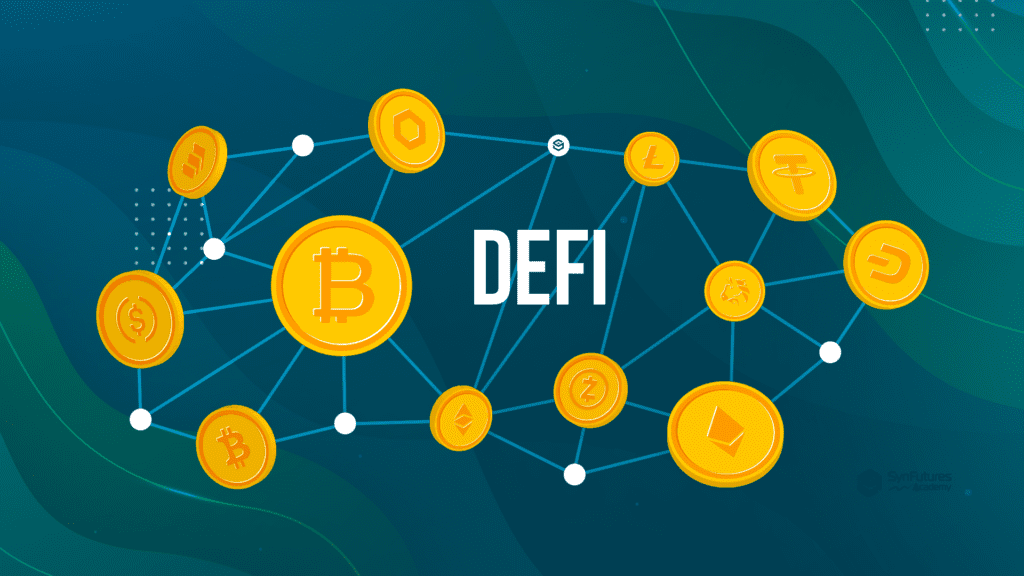Top 10 Tips To Navigate The Crypto Ecosystem With Ease

Entering the dynamic world of cryptocurrencies can be both thrilling and challenging. To help you navigate the crypto ecosystem with ease, we’ve compiled a list of the top 10 tips that encompass everything from security to strategic investment.
Your Guide to navigating the crypto ecosystem

1. Educate Yourself
Before diving into the crypto space, equip yourself with fundamental knowledge. Understand the underlying technology of blockchain, how transactions work, and the significance of decentralized finance (DeFi).
🔒💼 Understand the world of crypto custody! From security to convenience, this article breaks down solutions for investors and businesses navigating the crypto ecosystem. How do you safeguard your digital assets? Let’s discuss! #Cryptocurrency #CryptoCustody
— Moonner (@Moonner_Crypto) September 7, 2023
2. Choose Reputable Exchanges
The platform you choose for your crypto transactions matters. Opt for reputable exchanges with a track record of security and reliability. Research user reviews and platform features to make an informed decision.
3. Secure Your Wallet
Security is paramount in the crypto world. Utilize hardware wallets for cold storage and enable two-factor authentication to safeguard your digital assets from potential threats.
4. Diversify Your Portfolio
Minimize risk by diversifying your crypto portfolio. Rather than concentrating on a single asset, spread your investments across different cryptocurrencies to balance potential gains and losses.
5. Stay Informed
Stay ahead in the crypto game by staying informed. Regularly check crypto news sources, follow market trends, and stay updated on regulatory changes that may impact the industry.
6. Risk Management
Crypto investments come with risks. Develop a risk management strategy by only investing what you can afford to lose. Implement stop-loss orders to limit potential losses during market fluctuations.
7. Long-Term Perspective
While the crypto market can be volatile, adopting a long-term perspective often pays off. Avoid succumbing to the lure of short-term gains and focus on the potential growth of your investments over time.
8. Research Projects Thoroughly
Before investing, conduct thorough research on the projects you’re interested in. Scrutinize the technology, team, and community support behind a cryptocurrency to make informed decisions.
9. Network and Engage
Immerse yourself in the crypto community. Join forums, attend conferences, and engage with experts. Networking not only enhances your understanding but also opens doors to potential opportunities.
10. Tax Compliance
Cryptocurrency transactions may have tax implications. Stay compliant with tax regulations in your jurisdiction. Keep accurate records of your transactions and consult with a tax professional if needed.
Also, read – What Impact Did Ethereum 2.0 Brought On The Crypto Ecosystem And Beyond

Strategies to Navigate Challenges in the Crypto Ecosystem

Ready to tackle the challenges posed by the crypto world? Our guide, “Strategies to Navigate Challenges in the Crypto Ecosystem,” provides you with effective tools to overcome hurdles. Explore practical approaches for managing assets, understanding market trends, and mastering the art of crypto navigation. Gain the confidence to navigate the crypto landscape with skill and precision.
- Education is Key: Invest time in understanding the fundamentals of blockchain and cryptocurrencies. Numerous online courses, forums, and educational platforms can help bridge the knowledge gap.
- Prioritize Security: Use reputable wallets, enable two-factor authentication, and consider hardware wallets for secure storage. Regularly update yourself on the latest security practices to stay ahead of potential threats.
- Diversify and Manage Risk: Spread your investments across different cryptocurrencies and assets to mitigate the impact of market volatility. Set clear risk management strategies, including stop-loss orders.
- Stay Informed on Regulations: Keep abreast of cryptocurrency regulations in your jurisdiction. This can help you navigate legal complexities and ensure compliance with evolving regulatory frameworks.
- Verify Projects Thoroughly: Before investing, conduct in-depth research on cryptocurrency projects. Scrutinize whitepapers, team backgrounds, and community feedback to assess the legitimacy and potential of a project.
- Remain Vigilant Against Scams: Be cautious of unsolicited offers, phishing attempts, and fraudulent schemes. Verify the authenticity of projects and platforms before providing personal information or making transactions.
- Continuous Learning and Adaptation: Stay updated on technological advancements, market trends, and changes in the crypto landscape. Communities, forums, and reputable news sources can be valuable resources.
- Improve User Experience: Choose platforms with user-friendly interfaces and seamless experiences. This can simplify the navigation process, especially for those new to the crypto space.
- Encourage Adoption: Support projects and initiatives that contribute to mainstream adoption of cryptocurrencies. Increased usability and acceptance can positively impact the overall ecosystem.
- Engage in Communities: Join crypto communities, attend conferences, and participate in discussions. Networking with experienced individuals can provide insights, guidance, and a sense of community support.
By combining these strategies, you can navigate the challenges of the crypto ecosystem more effectively and make informed decisions within this dynamic and evolving space.

Conclusion
Navigating the crypto ecosystem requires a combination of knowledge, strategy, and vigilance. By following these ten tips, you can embark on your crypto journey with confidence. Remember, the crypto space is ever-evolving, so staying informed and adapting to changes will be key to your success.
FAQs about crypto ecosystem
- What is an ecosystem in crypto?
- In the realm of cryptocurrencies, an ecosystem refers to the interconnected network of blockchain-based projects, platforms, and participants that collectively contribute to the functioning and growth of the crypto space. This includes blockchain networks, decentralized applications (DApps), wallets, exchanges, and the community of users and developers involved in the crypto sphere. The ecosystem is characterized by its decentralized nature, aiming to provide various services, applications, and opportunities within the broader blockchain and digital asset landscape.
- What is the largest Cryptocurrency ecosystem?
- The largest cryptocurrency ecosystem is associated with Bitcoin. As the first and most well-known cryptocurrency, Bitcoin has built a robust and extensive ecosystem over the years. This ecosystem includes a diverse range of participants, such as miners, developers, investors, exchanges, and users. Additionally, Bitcoin has a vast network of nodes that validate and secure transactions, contributing to the overall stability and decentralization of its ecosystem.
- What are the risks of the crypto ecosystem?
- The crypto ecosystem is not without its risks, and participants should be aware of potential challenges. Some common risks include:
- Market Volatility: Cryptocurrency prices can be highly volatile, leading to rapid and unpredictable value fluctuations.
- Security Concerns: The decentralized nature of crypto makes it a target for cyber threats, including hacking and fraud.
- Regulatory Uncertainty: Shifting regulatory landscapes in various jurisdictions can impact the legality and use of cryptocurrencies.
- Technology Risks: Issues such as software bugs, network failures, or protocol vulnerabilities can pose risks to the overall stability of blockchain networks.
- What is the Web3 ecosystem?
- Web3 refers to the third generation of the internet, emphasizing decentralization, openness, and user control. The Web3 ecosystem incorporates blockchain technology, decentralized protocols, and cryptocurrencies to create a more user-centric and trustless Internet. It envisions a shift from centralized platforms to decentralized applications, allowing users to have greater control over their data and digital interactions. Web3 includes projects and initiatives focused on building a more decentralized and privacy-focused internet, fostering innovation in areas like decentralized finance (DeFi), non-fungible tokens (NFTs), and more.




























































